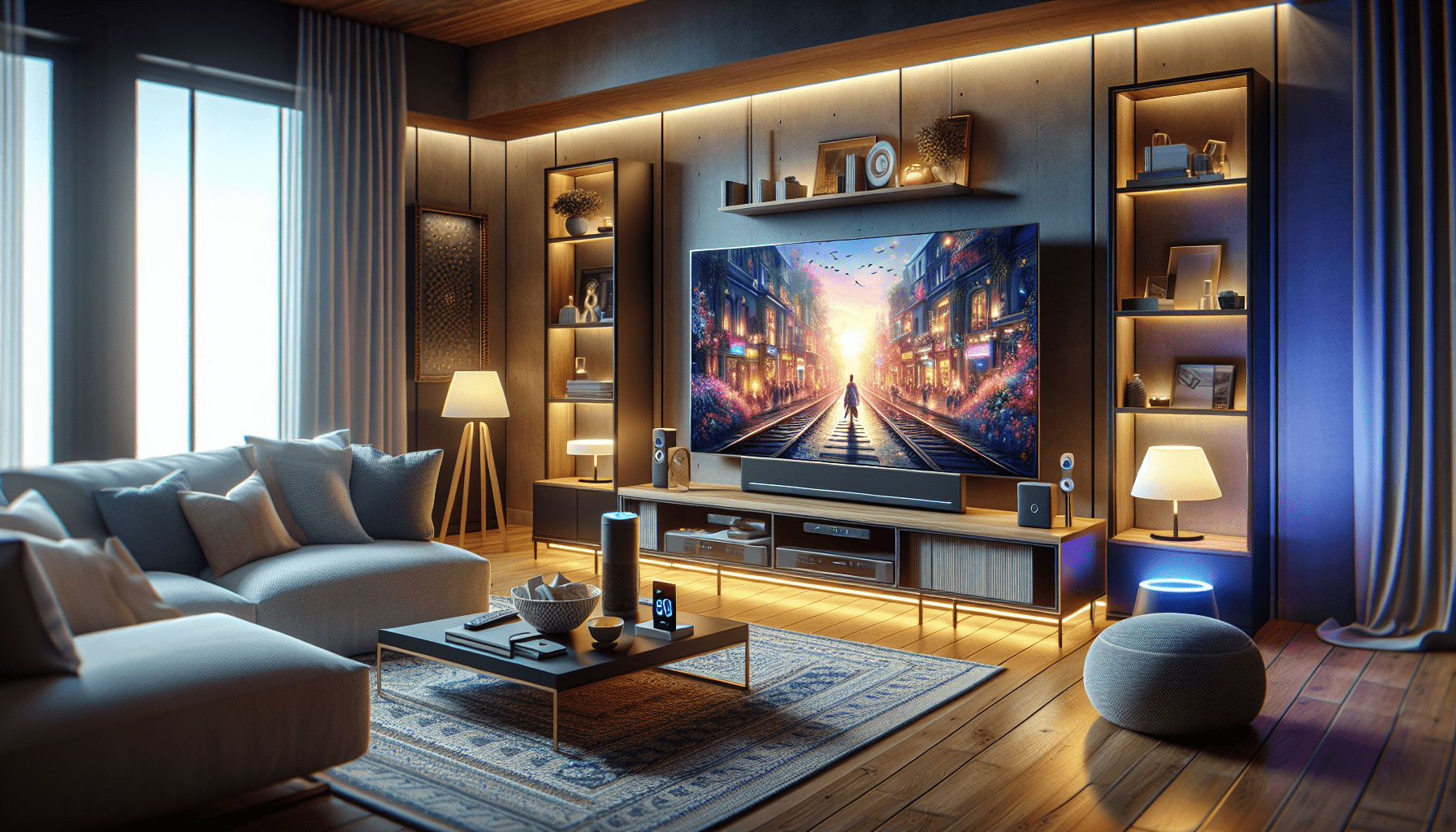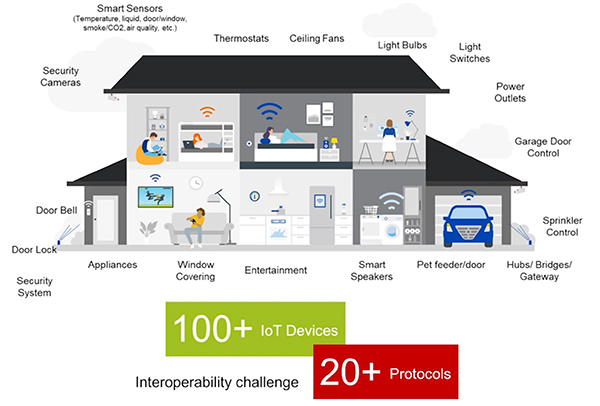Are you considering upgrading your home entertainment system to a smart one, but unsure if it will be compatible with your current smart TV? In this article, we will explore the compatibility of smart home entertainment systems with various smart TVs available in the market. Whether you’re a tech-savvy enthusiast or a casual user, understanding the compatibility aspect is vital before making any purchasing decisions. So, let’s dive into the world of smart home entertainment systems and explore if they are indeed compatible with all smart TVs.
Introduction
Welcome to the world of smart home entertainment systems! In this article, we will explore the compatibility between smart home entertainment systems and smart TVs. With the advancement of technology, our homes have become smarter, and so have our entertainment systems. Gone are the days of traditional cable TV setups; now we have smart TVs that offer a whole new level of convenience and versatility. But are all smart home entertainment systems compatible with all smart TVs? Let’s find out!
Understanding Smart Home Entertainment Systems
Definition of Smart Home Entertainment Systems
Smart home entertainment systems are devices that combine the functionality of a traditional entertainment system with smart features. These systems typically include a smart TV as the centerpiece, along with other devices and accessories such as soundbars, streaming devices, gaming consoles, and smart remotes. The purpose of these systems is to provide seamless integration between various entertainment devices and services, allowing users to access and control all their entertainment content in one place.
Features and Benefits of Smart Home Entertainment Systems
Smart home entertainment systems come with a plethora of features and benefits that enhance the overall viewing experience. Some common features include voice control, app and streaming service integration, compatibility with various devices (such as smartphones and tablets), high-resolution displays, and connectivity options like HDMI, Wi-Fi, and Bluetooth. The main benefits of these systems are ease of use, convenience, and the ability to access a wide range of entertainment content from multiple sources.
Types of Smart TVs
Different Brands and Models of Smart TVs
When it comes to smart TVs, there is a wide variety of brands and models available in the market. Some of the popular brands include Samsung, LG, Sony, TCL, and Vizio, each offering their own unique features and technologies. The models within each brand also differ in terms of display technology, screen size, picture quality, and smart functionalities. It is important to research and compare different brands and models to find the one that best suits your preferences and needs.
Operating Systems and Compatibility
Smart TVs operate on various operating systems, with the most common ones being Android TV, Tizen, webOS, and Roku TV. These operating systems determine the interface, functionality, and app compatibility of the smart TV. It is important to check the compatibility between the operating system of the smart TV and the smart home entertainment system you intend to use. Different operating systems may have different app stores, supported apps, and services, which can impact the overall compatibility and user experience.
Features and Capabilities
Smart TVs come with a range of features and capabilities that set them apart from traditional TVs. These features include built-in Wi-Fi for internet connectivity, app stores for downloading and installing apps, streaming capabilities for platforms like Netflix and Hulu, voice control through smart assistants like Alexa or Google Assistant, and even built-in game consoles for gaming enthusiasts. The capabilities of a smart TV contribute to its compatibility with different smart home entertainment systems, as not all systems may utilize or require the same features.
Compatibility Factors between Smart Home Entertainment Systems and Smart TVs
Connectivity Options (e.g., HDMI, Wi-Fi, Bluetooth)
Compatibility between smart home entertainment systems and smart TVs relies heavily on the available connectivity options. The most common connectivity options are HDMI, Wi-Fi, and Bluetooth. HDMI is used for connecting devices such as soundbars, gaming consoles, and streaming devices to the TV. Wi-Fi enables internet connectivity for streaming services and app downloads. Bluetooth allows for wireless connections between devices like speakers or headphones. It is crucial to ensure that the smart TV and the entertainment system support the same connectivity options to establish seamless connections between the devices.
Operating System Compatibility
Operating system compatibility is another crucial factor in determining the compatibility between a smart home entertainment system and a smart TV. Different operating systems have their own app stores and supported apps. For instance, a smart home entertainment system that relies on apps available only in the Google Play Store may not be compatible with a smart TV running on the Tizen operating system. It is essential to ensure that the smart TV’s operating system supports the apps and services required by the entertainment system.
App and Streaming Service Integration
App and streaming service integration is an important aspect of compatibility between smart home entertainment systems and smart TVs. Not all smart TVs provide access to the same apps and streaming services. Some may have a wider selection, while others may be limited in terms of availability. It is essential to research and verify that the desired apps and streaming services are supported and available on the smart TV before investing in a compatible smart home entertainment system.
Voice Control and Smart Assistants
Voice control and smart assistants have become increasingly popular in smart home entertainment systems. Some smart TVs come with built-in microphones and smart assistants like Amazon Alexa or Google Assistant, allowing users to control the TV using voice commands. Compatibility between a smart home entertainment system and a smart TV with voice control depends on the integration of the system with the TV’s smart assistant. It is important to verify if the smart home entertainment system supports the smart assistant of your smart TV to ensure seamless voice control integration.
Smart Home Entertainment System Requirements for Smart TV Compatibility
Operating System
When selecting a smart home entertainment system, it is crucial to consider the operating system requirements for compatibility with your smart TV. Ensure that the entertainment system is compatible with the operating system of your smart TV to ensure smooth communication between the devices. It is also essential to check for any specific software or firmware requirements from the entertainment system’s manufacturer.
Supported App and Streaming Services
One of the primary functions of a smart home entertainment system is access to various apps and streaming services. Before investing in a system, check if it supports the apps and streaming services you frequently use. Some systems may have a wide range of app and service integration options, while others may have limitations. Make a list of your preferred apps and streaming services, and ensure they are compatible with the entertainment system you are considering.
Connectivity Options
Connectivity options play a vital role in the compatibility between smart home entertainment systems and smart TVs. Determine the connectivity options you require to connect additional devices or accessories to your smart TV. For example, if you plan to connect a soundbar or a gaming console, ensure that the entertainment system supports the necessary connectivity options, such as HDMI or Bluetooth.
Voice Control Integration
If voice control is essential to you, verify whether the smart home entertainment system supports the smart assistant integrated into your smart TV. This enables seamless voice control operations and commands. Checking for voice control compatibility ensures a more convenient and user-friendly experience when operating your smart TV through the entertainment system.
Potential Compatibility Issues and Limitations
Operating System Incompatibility
One common compatibility issue occurs when the operating system of the smart home entertainment system is not compatible with the operating system of the smart TV. This can limit app availability, functionality, and usability. To avoid operating system incompatibility issues, thoroughly research and ensure compatibility between the entertainment system’s operating system and your smart TV before making a purchase.
Limited App and Streaming Service Support
Not all smart home entertainment systems support the same range of apps and streaming services. Certain systems may have exclusive partnerships or limited app availability. Ensure that the entertainment system you choose supports your preferred apps and streaming services. This avoids disappointment and ensures that you can access all your favorite content seamlessly.
Connectivity Issues
Connectivity issues can arise when the required connectivity options of the smart home entertainment system do not match those of the smart TV. For instance, if the system requires a Bluetooth connection, but your TV only supports HDMI connectivity, you may encounter compatibility issues. Always double-check the connectivity options and ensure they align with your smart TV’s capabilities to avoid any connectivity-related issues.
Lack of Voice Control Integration
Some smart home entertainment systems may not have voice control integration or may not support the smart assistant of your smart TV. This can restrict the use of voice commands and limit the convenience of controlling your TV hands-free. If voice control is a priority for you, make sure the entertainment system you choose supports the necessary voice control integration for your smart TV.
Choosing a Smart Home Entertainment System for Your Smart TV
Researching Compatibility with Smart TV
Before choosing a smart home entertainment system, conduct thorough research to determine its compatibility with your smart TV. Look for user reviews, forums, or manufacturer websites that provide information about the system’s compatibility with different smart TV brands and models. This research will give you insights into real-world experiences and help you make an informed decision.
Considering Operating System Requirements
Ensure that the operating system of the entertainment system aligns with the operating system of your smart TV. This compatibility ensures a seamless user experience and access to all the features and services you need. Consider your preferred apps, streaming services, and any specific requirements related to the operating system when making a decision.
Verifying App Availability
Create a list of your preferred apps and streaming services and verify their availability on the entertainment system you are considering. This step is crucial to ensure that you can access all the content you desire without any limitations or disappointments. Additionally, check for any compatibility issues related to app updates and whether the entertainment system supports future app releases.
Checking Connectivity Options
Review the connectivity options supported by the smart home entertainment system and compare them with the connectivity options available on your smart TV. Check for compatibility with HDMI, Wi-Fi, Bluetooth, and any other relevant connection types required for your specific setup. By doing so, you can ensure that all your devices can connect seamlessly, providing an optimal entertainment experience.
Evaluating Voice Control Integration
If voice control is important to you, evaluate the voice control integration capabilities of the smart home entertainment system. Ensure that it supports the smart assistant integrated into your smart TV for hands-free control. Consider the commands and features that can be accessed through voice control to ensure a smooth and convenient user experience.
Troubleshooting Smart Home Entertainment System Compatibility
Updating Firmware and Software
If you encounter compatibility issues between your smart home entertainment system and your smart TV, consider updating the firmware and software of both devices. Manufacturers often release updates to address compatibility issues and improve overall functionality. Visit the manufacturer’s website or consult the user manuals to find instructions on how to update the firmware and software for your specific devices.
Resetting Connections
In some cases, connectivity issues between the smart home entertainment system and the smart TV can be resolved by resetting the connections. This can involve power cycling both devices, disconnecting and reconnecting cables, or performing a factory reset on the smart TV and the entertainment system. Consult the user manuals or reach out to customer support for step-by-step instructions on resetting the connections.
Contacting Manufacturer Support
If you have exhausted all troubleshooting options and are still experiencing compatibility issues, it is best to contact the manufacturer’s support for further assistance. They have in-depth knowledge of their devices and can provide guidance and solutions specific to your situation. Manufacturer support can help troubleshoot compatibility issues, provide software updates, or suggest alternative solutions or workarounds.
Future of Smart Home Entertainment System Compatibility with Smart TVs
Advancements in Standardization
The future of smart home entertainment system compatibility with smart TVs looks promising, with advancements in standardization aiming to establish more uniformity across devices. As technology evolves, standard protocols and interfaces are being developed to ensure seamless compatibility between different brands and models. This will greatly simplify the selection and integration process for users, making smart home entertainment systems more accessible and convenient.
Improved Integration and Interoperability
Manufacturers are actively working toward improving the integration and interoperability of smart home entertainment systems with smart TVs. As they collaborate and share technologies, the overall compatibility between devices is expected to improve. Seamless integration will allow users to effortlessly connect and control their smart TVs with any compatible entertainment system, enhancing the overall viewing experience.
Expanding App and Streaming Service Support
The future will see an expansion in app and streaming service support across various smart home entertainment systems and smart TVs. As the demand for diverse content continues to grow, manufacturers will focus on expanding their app stores and ensuring compatibility with a wider array of apps and streaming services. This will provide users with more options and flexibility in accessing their favorite entertainment content.
Integration with Smart Home Ecosystems
Smart home entertainment systems will become even more integrated with the wider smart home ecosystem. This integration will allow users to control their entire smart home, including their smart TV, using a single voice command or app interface. The seamless communication and interoperability between different smart devices will create a truly connected and immersive home entertainment experience.
Conclusion
In conclusion, not all smart home entertainment systems are compatible with all smart TVs. It is important to consider factors such as operating system compatibility, app and streaming service integration, connectivity options, and voice control integration when choosing a system for your smart TV. Thorough research, verification of requirements, and consideration of potential compatibility issues are crucial steps to ensure a seamless and enjoyable entertainment experience. While compatibility challenges may exist, the future holds promise for improved standardization, integration, and expanded app and streaming service support, ensuring even greater compatibility between smart home entertainment systems and smart TVs.




